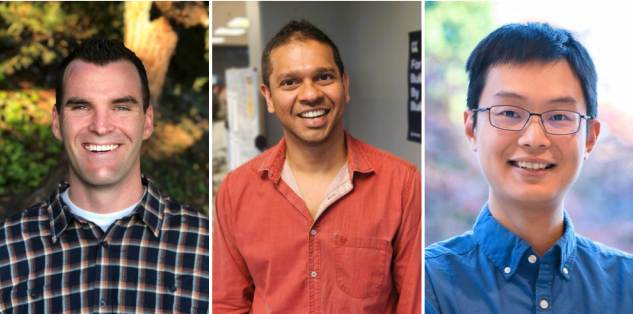Seattle’s AI Startups Shine on Global Stage Despite Regional Challenges
In a significant recognition of Seattle’s growing artificial intelligence ecosystem, three local startups have earned spots among the world’s top 40 private AI companies, according to the prestigious Intelligent Applications 40 (IA40) list recently published by Madrona Venture Group. This annual ranking showcases companies that are successfully integrating artificial intelligence into practical business solutions, providing a snapshot of the most promising innovators in the rapidly evolving AI landscape. The recognition comes at a pivotal time when the Pacific Northwest is working to establish itself more prominently on the global AI map despite being overshadowed by Silicon Valley’s dominant presence in the sector.
The rigorous selection process involved more than 70 venture capital investors from 54 different firms who nominated over 340 private companies for consideration. After an initial round of nominations, these investors voted on a shortlist of finalists, with the final rankings determined through a combination of these votes and data from PitchBook’s “Venture Exit Predictor Tool.” The resulting list reveals significant dynamism in the AI industry, with an impressive 27 new companies appearing this year – a 67.5% turnover rate that underscores the breakneck pace of innovation and competition in artificial intelligence. This volatility reflects not just the emergence of new players but also the rapid evolution of AI technologies and their applications across diverse industries.
The three Seattle-area companies earning this prestigious recognition each bring unique contributions to the AI landscape. Clarify, based in Seattle proper, has developed a sales intelligence platform that streamlines workflows and consolidates customer data to enhance sales team performance, recently securing $15 million in funding to expand its operations. Fellow Seattle company Dropzone AI offers an “AI SOC analyst” that helps security teams by automating the investigation of security alerts, reducing workload and improving response times – an innovation that attracted $37 million in Series B funding last month. Completing the local trio is Bellevue-based Statsig, whose product development platform enables teams to run experiments and manage features more effectively, a value proposition compelling enough to attract $100 million in funding earlier this year and elevate the company to unicorn status with a valuation exceeding $1 billion.
While the recognition of these three companies represents a significant achievement for the Seattle tech ecosystem, it also highlights a persistent regional disparity in AI innovation. The IA40 list remains heavily dominated by Bay Area companies, including industry titans like OpenAI and Anthropic that have defined the current AI revolution. This imbalance reflects a reality recently reported by GeekWire: despite Seattle’s reputation as a global AI hub – powered by the presence of tech giants like Microsoft, Amazon, and Google – the region has yet to produce the same density of standalone AI startups as the San Francisco Bay Area. This gap persists despite Seattle’s deep pool of technical talent, established tech infrastructure, and increasing venture capital activity, suggesting that other factors may be influencing the regional distribution of AI innovation.
Looking beyond geographic distribution, the IA40 report identifies several important trends shaping the future of AI applications. Particularly notable is the emergence of next-generation user interfaces that are conversational and “agentic” – systems capable of reasoning and executing tasks autonomously rather than simply responding to queries. The report also highlights a multi-billion dollar opportunity in new AI development tools that promise to transform software creation, alongside the increasing success of “service-as-software” business models that blend traditional SaaS approaches with service components. These trends are built upon foundations including sophisticated data management systems and mature enabling infrastructure that powers these innovations, creating momentum for AI-native products tailored to specific industry verticals.
For Seattle’s tech community, the recognition of Clarify, Dropzone AI, and Statsig offers both validation and challenge – confirmation that the region continues to produce world-class AI innovations, coupled with the reality that much work remains to close the gap with Silicon Valley. As these companies continue their growth trajectories, they not only advance their individual business objectives but also strengthen Seattle’s position in the global AI ecosystem. Their success may help catalyze further investment and entrepreneurship in the region, potentially addressing the relative scarcity of superstar AI startups that GeekWire highlighted. With continued development of local talent, capital resources, and supportive infrastructure, Seattle has the opportunity to build on these successes and further establish itself as a distinctive and powerful center for artificial intelligence innovation, complementing rather than simply competing with the Bay Area’s established dominance.


